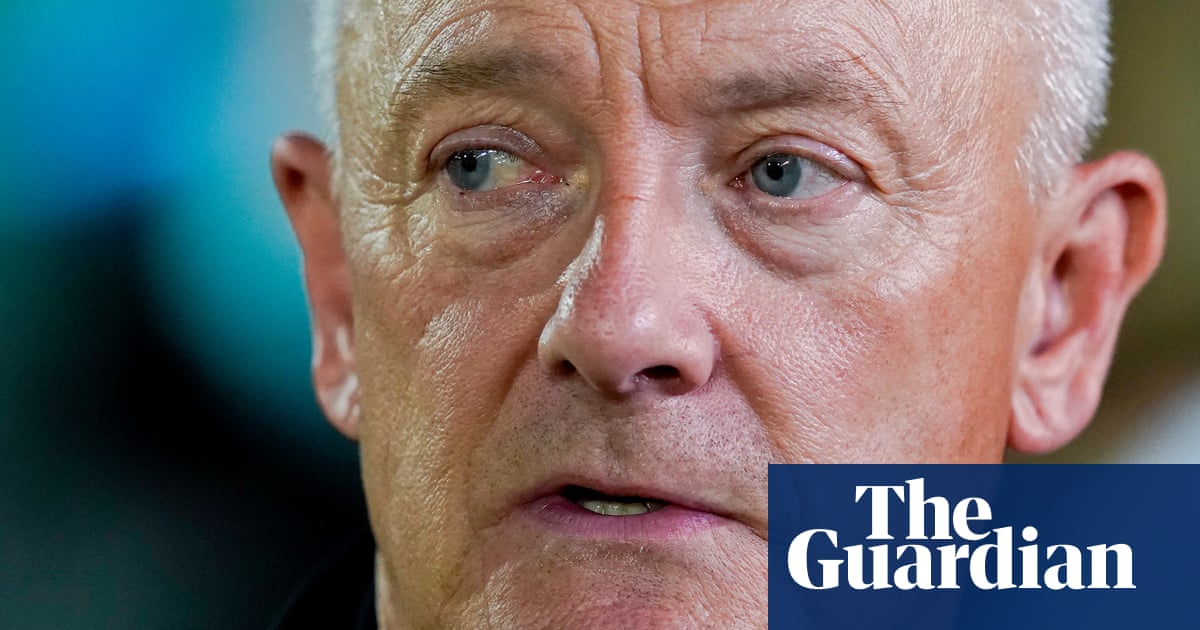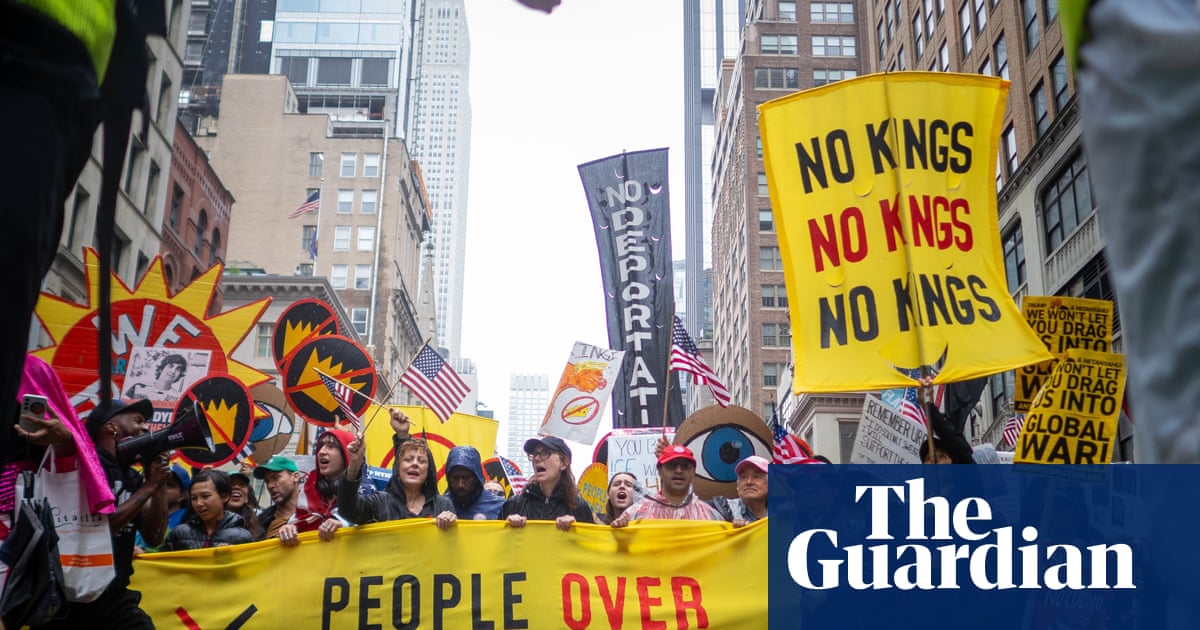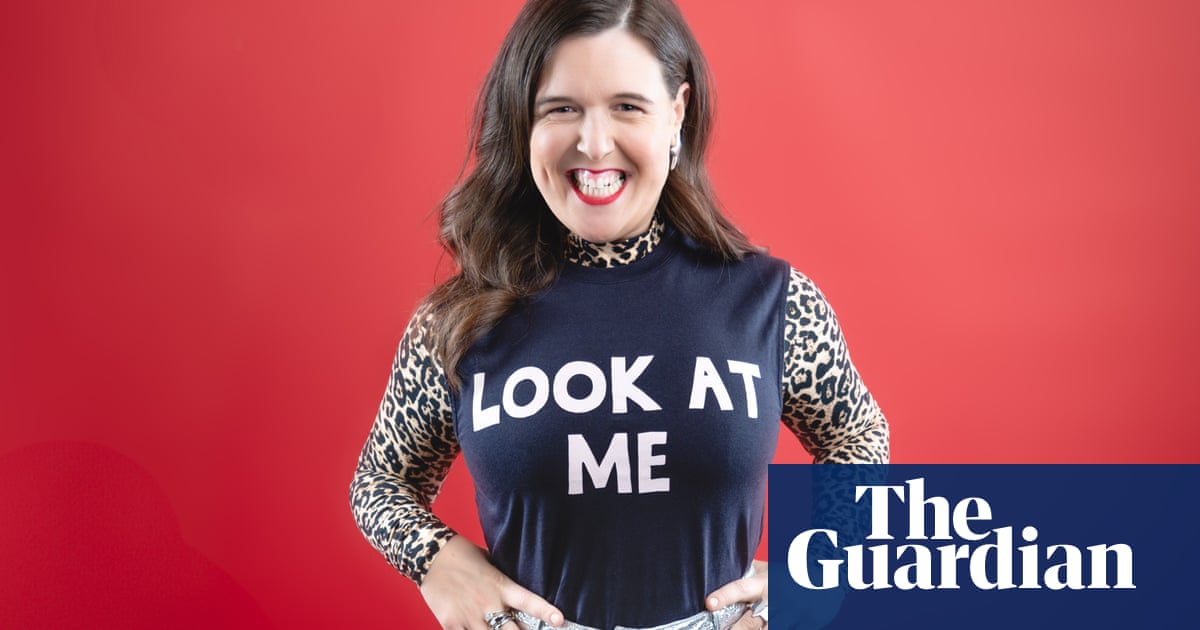MI6 has never had a female head in its 116-year history – until now. How fitting that the first woman should be called Blaise Metreweli. That forename has it all: derring-do (courtesy of Modesty Blaise), onomatopoeia, modernity.
Metreweli will take over in the autumn as C, the real-life version of M from James Bond. She currently runs Q branch, MI6’s technology division, which apparently is named after the Bond quartermaster. No fictional Q has ever been female, but in real life at least two women, including Metreweli, are thought to have held the role. M can be male or female, except now they succeed or fail by how much they resemble Judi Dench, so all of them, including the incumbent, Ralph Fiennes, are de facto female.
In other words, while there is a strong cultural presumption that the computers bro is indeed a bro, there is no ambient fictional expectation that the head of the Secret Intelligence Service should be male. If it has taken the agency more than a century to tick this particular diversity box, it has only itself to blame.
If you squint at it, it could be precisely because of Ian Fleming, via his cinematic legacy, that the real MI6 has been so slow. M is a hard-to-please-parent archetype – Bond seeks M’s approval, yet at some critical juncture he always has to disobey M in order to self-actualise, creating a heady cocktail of vexation and admiration that M, being ultimately a smart and patriotic character, manages to choke down in the interests of her majesty (well, his majesty now, but we don’t have time for whether or not heads of state are better off male or female).
The screen far prefers it when this stern but loving authority figure is a woman – Dench was recently joined by Kristin Scott Thomas, the head of MI5 in Slow Horses, two bookends representing the full range of everyone by whom a spy would want to be told off. In real life, though, it seems an executive decision was made and never revisited until this year: secret agents can’t work for their proxy mum; they can accept censure only from their pretend dad.
If you look at the professions from which women are typically excluded at the highest levels, the grounds for exclusion are never the same twice – it’s almost as if there is no fixed conception of femininity. Tech is notably male-dominated, on the assumption that women aren’t going to get it because it’s too hard, yet will ruin things by being too serious-minded. Yes, it’s hard to square, but it’s helpfully distilled in Mountainhead, Jesse Armstrong’s latest satire, which features a retreat that abides by the rule “no meals, no deals, no heels”. Nutrition, commerce and gender diversity would kill the vibe.
In politics, wherever it’s impossible for a woman to be elected – in the US, it’s the top job; in the UK, it’s the Labour party – it’s usually because she is too “schoolmarmish”. This is always delivered as a personal critique of an individual woman, as if Hillary Clinton or Harriet Harman had been born under an unlucky star, too close to the blackboard or the severe hairline. The real objection – the MI6-adjacent “I love women and some of my best friends are women, I just don’t like it when they have authority over me” – must remain as unspoken as it is obvious.
In boardrooms, women are considered an impediment for the opposite traits: not enough authority, too much amiability, not enough killer instinct, too much human sympathy. Research has shown repeatedly that gender diversity on boards is linked to higher profits, so the determination to exclude women is purely emotional, which is a cute irony, given that it’s supposed to be women who mess everything up by being too emotional.
I would have way less of a problem with gender-exclusionary workplaces if they would pick a lane and establish exactly what the issue is, between women being too serious and not serious enough, too authoritative and too flaky. Metreweli doubtless rose to the top by ignoring such silliness and powering through; good luck to her.
after newsletter promotion
Zoe Williams is a Guardian columnist

 6 hours ago
2
6 hours ago
2

















































